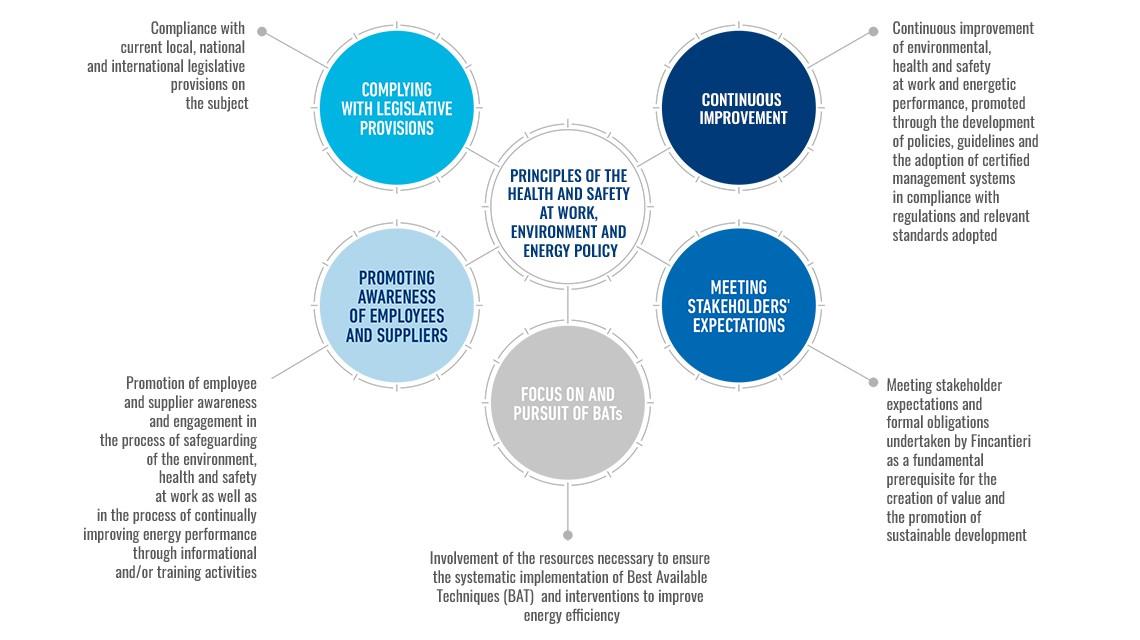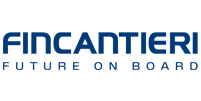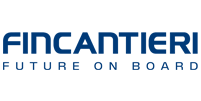We are committed to protecting the environment, reducing risks and impacts, through efficient investments to develop initiatives that limit our environmental impact and promote energy efficiency, responsible use of resources and proper waste disposal.
The principles adopted by Fincantieri as a reference for the management of aspects relating to Health and Safety at Work, Environment and Energy are contained in the Health and Safety at work, Environment and Energy Policy. The latter Policy is binding for all Fincantieri employees, approved by the CEO of Fincantieri S.p.A. and is also addressed to all suppliers. It is shared, in particular, through ongoing coordination activities carried out in the various production sites.


We are constantly working on our Management Systems in all production plants and in all ISO 14001 certified business units, in particular 100% of the Italian production plants have that certification and 89% at Group level.
Each Fincantieri production site, certified in accordance with ISO 14001, draws up its own site policy, which is binding for all workers.
The adoption of a management system in accordance with the highest international standards involves an analysis of the risks associated with the activities of the Company and stakeholder involvement.
While the other yards operate under the Single Environmental Authorization, the Monfalcone shipyard has been issued with the Integrated Environmental Authorization by the Friuli-Venezia Giulia region. This is the first procedure with these characteristics for the Company and is tangible confirmation of the sensitivity towards the territory and transparency in the management of the production process.
Each Production Unit, in its Site Emergency Plan, has provided appropriate procedures to be implemented to deal with any Environmental Emergency situations. Each plant has a dedicated single number to be contacted for the sole purpose of reporting a threat and then initiating the necessary containment and management actions through the prompt intervention of appropriately informed, trained and instructed personnel.
Which objectives do we have on this topic?
Climate change: 2023-2027 Sustainability Plan objectives and targets
Support for research to improve the analysis and management of risks associated with climate change
Discover the objectives
Promotion of research projects to develop new solutions for energy efficiency or reduction of emissions in collaboration with research institutes / universities on issues associated with climate risks
| Description/Target | Timeline | Perimeter | Status | SDGs |
|
Complete four projects by 2030, of which: |
|
Group |
|
|
Reduction of carbon dioxide (CO2) and other pollutant emissions with the aim of contributing to the fight against climate change
Discover the objectives
Reduction of greenhouse gas (GHG) emissions
| Description/Target | Timeline | Perimeter | Status | SDGs |
|
-4% of Scope 1 and 2 GHG emissions compared to 2021 |
2025 |
Group |
In 2023, we implemented several initiatives aimed at improving our environmental performance and reducing Scope 1 and 2* emissions compared to 2021.
* market-based, emissions from electricity purchased by considering emission factors expressed in CO2 relative to the residual mix |
|
|
-8% of Scope 1 and 2 GHG emissions compared to 2021 |
2027 |
|||
|
-20% of Scope 1 and 2 GHG emissions compared to 2021 |
2030 |
Ensure the use of electricity from renewable sources
| Description/Target | Timeline | Perimeter | Status | SDGs |
|
100% electricity from renewable sources |
2030 |
Group |
We are committed, through the installation of photovoltaic systems and the purchase of Guarantees of Origin (GO), to gradually increase the share of electricity from renewable sources. |
|
Reduction of emissions of volatile organic compounds (VOCs) through plant works and gradual substitution of the products used with solvent-free or lower-solvent alternatives
| Description/Target | Timeline | Perimeter | Status | SDGs |
|
-3% VOC emissions over hours of production compared to 2021 |
2025 |
Group |
Thanks to initiatives put in place such as replacing traditional paint products with low-solvent or water-based solutions, VOC emissions have decreased compared to 2021, the baseline of the Plan target. |
|
|
-5% VOC emissions over hours of production compared to 2021 |
2027 |
Which objectives do we have on this topic?
Environmental management: 2023-2027 Sustainability Plan objectives and targets
Implementation of projects to improve energy efficiency and conserve natural resources, protect biodiversity and reduce environmental impact to prevent soil, air and water pollution
Discover the objectives
Waste reduction
| Description/Target | Timeline | Perimeter | Status | SDGs |
|
Maintaining the portion of waste sent for recycling between 80-90% each year |
2023-2027 |
Group |
Thanks to the initiatives of sorting and separating processing residues for recovery and reuse of materials still suitable for use in production activities, we have been able to consolidate the share of waste sent for recycling out of the total waste produced above 80 percent. |
|
|
- 5% of the quantity of waste produced over hours of production compared to 2021 |
2025 |
We are committed to reducing our waste especially hazardous waste. With a focus on the circularity of processing residues, we are pursuing various scouting activities that will enable us to reduce waste. Compared to 2021, waste generated on production hours has decreased by 4.8 % |
||
|
- 10% of the quantity of waste produced over hours of production compared to 2021 |
2027 |
Reduction of water withdrawals
| Description/Target | Timeline | Perimeter | Status | SDGs |
|
-3% of water withdrawal over hours of production compared to 2021 |
2025 |
Group |
We are aware of the importance of the water resource so over the years various measuring and monitoring tools have been implemented that have allowed us to take action and reduce water withdrawals compared to 2021. |
|
|
-10% of water withdrawal over hours of production compared to 2021 |
2027 |
|||
|
-12% of water withdrawal over hours of production compared to 2021 |
2030 |
Protection of biodiversity
| Description/Target | Timeline | Perimeter | Status | SDGs |
|
Launch of project for the protection of biodiversity |
2024 |
Group |
|
|
|
Analysis of the impacts of production processes on biodiversity |
2026 |
|||
|
Definitions of actions to mitigate impacts on biodiversity |
2027 |



